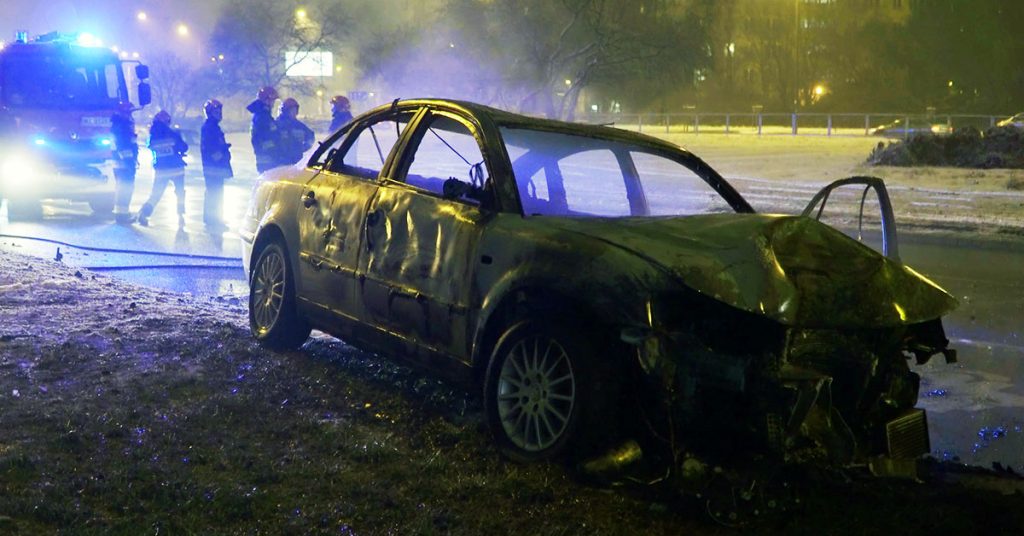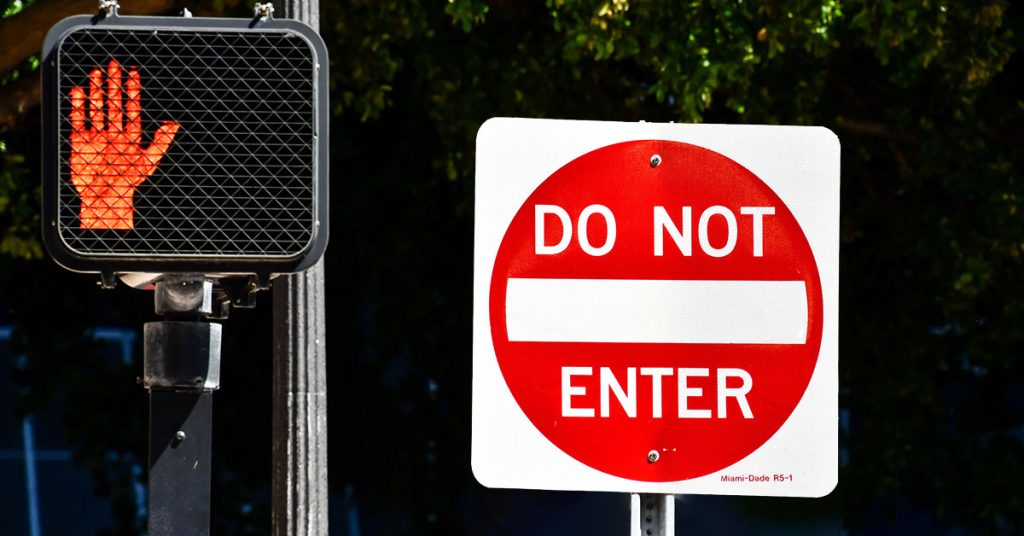Posts Tagged ‘“Boston car accident attorney”’
New Cars May Get Technology to Help Detect and Reduce Drunk Driving
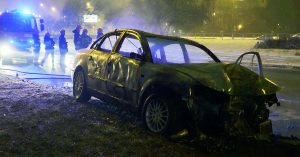
Automakers may soon have to build cars with technology to work toward stopping drunk driving crashes.
The $1 trillion infrastructure bill is being called the most important legislation in more than 40 years in the work to stop drunk driving accidents, injuries and deaths.
After a long pandemic, the infrastructure bills calls for expansive funding across all areas of transportation, including airports, public transit, roads, bridges, bike lanes and pedestrian improvements.
The infrastructure bill also includes new safety mandates for automakers, including that new cars be built with technology to detect and reduce drunk driving and for rear-seat reminders to alert parents that a child has been left behind.
The U.S. House of Representatives passed the federal Infrastructure Investment and Jobs Act on Friday, sending the legislation to President Joe Biden’s desk. The U.S. Senate had already approved the bill in August.
“Single Most Important” Legislation to Stop Drunk Driving Accidents
Mothers Against Drunk Drivers called the infrastructure bill the “single most important legislation” in its 41-year history of working to stop drunk driving tragedies.
Drunk driving kills about 10,000 people each year on U.S. roads, according to the National Highway Transportation Safety Administration. This accounts for roughly 30 percent of all traffic fatalities.
The infrastructure bill calls for all new cars to comply with an advanced drunk and impaired driving prevention technology standard. The legislation does not specify what the technology will be.
If the president signs the bill, the NHTSA will be charged with finalizing rules for implementing a technology within three years. Automakers will have an additional two years to incorporate the changes into the production.
Mothers Against Drunk Driving has long advocated that states make breathalyzers mandatory sentencing for those who have been convicted of drunk driving.
The Washington Post interviewed a few experts who said to expect more passive technologies than a breathalyzer.
Potential technologies could work around breath or blood sensors, or cameras.
The NHTSA has worked with the Automotive Coalition for Traffic Safety (ACTS) for more than 10 years to develop technologies that discretely detect alcohol on drivers’ breath.
Drunk Driving Accidents and Injuries in Massachusetts
In Massachusetts, drivers who operated under the influence of alcohol killed 120 people in 2018 (Source: MADD). As with the federal numbers, this represents about a third of all traffic fatalities across the state that year.
Drunk driving accidents are preventable if drivers remember their responsibilities. Massachusetts drivers have a responsibility to use reasonable care on the roads. Operating under the influence is both against the law and negligent if you cause a crash resulting in injury.
Drivers also have a responsibility not to operate while impaired by drugs, including marijuana, which was legalized in Massachusetts in 2016.
Free Legal Consultation – Boston Car Accident Lawyers
Founded in 1992, Breakstone, White & Gluck is a top-rated Boston law firm that specializes in representing clients in personal injury and car accident cases. We have expertise in representing victims and families of drunk driving accidents in claims against drivers and in Massachusetts liquor liability claims involving third parties.
Our firm stands out for our experience. Each of our partners offers more than 30 years of experience representing clients in Boston and across Massachusetts.
For a free legal consultation, contact Breakstone, White & Gluck at 800-379-1244 or 617-723-7676 or use our contact form.
As Wrong-Way Crashes Rise, Drunk Driving is the Leading Cause, But a Driver’s Age and Driving Alone May Also Contribute
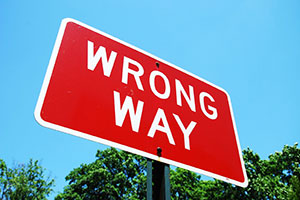
Wrong-way crashes are on a dangerous rise in Massachusetts and across the U.S., according to the AAA Foundation for Traffic Safety.
No one ever wants to hear the phrase “wrong-way crash.” But head-on collisions are frequent and often fatal on Massachusetts highways.
A new traffic analysis reveals the number of wrong-way crashes is rising on divided highways across the U.S. The majority of these auto crashes involve an alcohol-impaired operator. Drivers are exceeding the legal limit in 6 of 10 wrong-way car crashes, according to the AAA Foundation for Traffic Safety.
Drunk driving is the leading cause. Yet researchers say other factors, including a driver’s age and driving without a passenger, contribute. For example, 87 percent of wrong-way drivers travel alone. Passengers can be a resource for drivers, giving them an extra set of eyes to catch potential mistakes.
As for older drivers, those between 75 and 79 drive fewer miles and spend less time driving than younger operators. Still, they are more likely to be involved in a wrong-way crash and states are being urged to review how they identify medically at-risk drivers.
How Many Wrong-Way Crashes Are There in Massachusetts Each Year?
In Massachusetts, MassDOT data shows 150 people have died and more than 4,500 have been injured in wrong-way car accidents since 2010, according to CBSBoston.com. Since 2010, there have been 8,200 wrong-way crashes.
Nationwide, wrong-way accidents caused an average of approximately 500 deaths per year from 2015 – 2018, according to AAA. This represents a 34 percent increase from 2010 – 2014.
According to the CBSBoston.com report, the numbers also climbed in Massachusetts, from 19 to 27 deaths on average annually for the same period, a 78 percent increase.
Worcester recorded 366 wrong-way crashes, more than any other community in Massachusetts, followed by Springfield and Boston.
Wrong-Way Crashes Can Also Happen at Local Intersections
The AAA report focuses on wrong-way crashes on divided highways. Drivers can also make dangerous maneuvers resulting in wrong-way accidents at local intersections. From 2015-2018, the Federal Highway Administration reported roughly 400-450 wrong-way crashes at intersections.
Crashes may not be reported the same way at intersections, which have different traffic conditions, speeds and signage. When there is a wrong-way crash, the driver may be cited for another infraction, such as a marked lanes violation or failure to stop for a traffic signal.
But if you have been seriously injured at an intersection with a “Do Not Enter-Wrong Way” sign, it is in your best interest to consult an experienced car accident attorney who can thoroughly investigate the cause of a collision and your injury. An attorney can help you secure evidence promptly and with every aspect of your claim should you need to seek compensation from an at-fault driver’s insurance policy.
Strengthening Traffic Laws to Reduce Wrong-Way Crashes
The AAA Foundation for Traffic Safety and the National Transportation Safety Board are working to educate drivers about taking safety precautions to avoid wrong-way crashes and head-on traffic crashes. The most fundamental step is not to drink and drive.
The organizations also support passage of safety laws and infrastructure improvements, including more visible traffic signs.
Ignition-interlock laws are part of this effort and all eyes are on Massachusetts. We are the only state which does not require drivers with a first-time OUI conviction to utilize ignition interlocks, which test one’s blood alcohol concentration before they start driving.
However, after years of unsuccessful debate, Massachusetts may finally be moving closer. Last December, Gov. Charlie Baker signed an amendment to the state budget which if passed, will make ignition interlocks mandatory for all drivers convicted of operating under the influence. This could make a meaningful difference in discouraging choices that lead to drunk driving crashes and very serious injuries across Massachusetts.
Tips for Driving Safely on Highways
Do Not Drink and Drive. Never consume alcohol – or marijuana or other drugs – then drive. Use the designated driver system if you plan to go out and consume alcohol. Drivers have the same responsibility when using prescription medications which carry safety warnings about driving. If you have a question, consult your doctor on when and how you should use your medication.
Stay Alert. Do not drive if you are drowsy or fatigued. If you find yourself too tired to drive, stop your vehicle and come up with a short-term plan for getting some rest or grabbing a cup of coffee. There is always an alternative, including Uber or Lyft. Drivers often want just to push through and reach their destination. But if your vision is blurry or you cannot focus, you are driving negligently and putting others in harm’s way.
Drive with a Friend. You can split up the driving responsibilities, which will reduce your fatigue.
Avoid Distracted Driving. Reaching for a cell phone is the cause of many auto accidents. You are not using reasonable care to drive safely if you attempt to make a phone call while traveling through highway traffic, among other cars, SUVs and large trucks.
While Massachusetts has a hands-free driving law and drivers are legally allowed to make phone calls with Bluetooth devices, the safest approach is to still look for a rest stop or exit and safely park your vehicle before using your phone.
Create a Family Support System. Families can support each other in getting home safely. Try to develop a network of friends and loved ones who will support you. Ask them in advance if they would be willing to come pick you up if you ever needed a ride. Be willing to do the same for them.
Help Older Drivers Plan. Be proactive. Take time to discuss transportation options with the older driver in your life. If they drive, help them plan the best times of day to travel and steer them away from the highway. Remind them the importance of having a regular eye exam.
Let them know they have support. Make a schedule for your loved one to get out several times a week with you, other family members, grandchildren or a Council on Aging.
Free Legal Consultation – Call Our Boston Auto Accident Lawyers
With more than 100 years combined experience, Breakstone, White & Gluck specializes in representing those who have suffered serious personal injury or wrongful death due to negligence. We are based at 2 Central Plaza in downtown Boston.
With expertise in Massachusetts insurance laws and traffic accident investigations, our attorneys are here to guide clients through the difficulties you face after a serious accident. For a free legal consultation, contact Breakstone, White & Gluck and our car accident lawyers at 800-379-1244 or 617-723-7676 or use our contact form.
Message to Massachusetts Lawmakers: Time for Cell Phone Ban
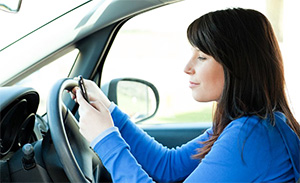 The Massachusetts State Senate is expected to consider a ban on hand-held mobile electronic devices while driving. Many feel a ban is long overdue and we agree.
The Massachusetts State Senate is expected to consider a ban on hand-held mobile electronic devices while driving. Many feel a ban is long overdue and we agree.
“Even New Hampshire has gone hands-free. It’s time for Beacon Hill to act,” wrote the Boston Herald editorial board.
The Senate is expected to consider the ban Thursday. Under the proposed legislation, Massachusetts drivers could still talk on the phone using hands-free technology.
Drivers would receive a $100 fine for the first violation, $250 for the second and $500 for all subsequent violations. Drivers cited three times would receive an auto insurance surcharge.
The bill would change the law in Massachusetts for all drivers over 18. Junior operators are already banned from cell phone use behind the wheel.
According to the National Safety Council, cell phone use is now estimated to be involved in 26 percent of all motor vehicle crashes. At any given moment of the day, 660,000 drivers are using cell phones or manipulating electronic devices while driving, according to the National Highway Traffic Safety Administration (NHTSA). The NHTSA also reported one survey found almost half of all drivers will answer an incoming call while driving. One in four drivers is willing to place a call on all, most, or some trips.
Texting While Driving Bans
In 2010, then-Massachusetts Governor Deval Patrick signed a bill into law which banned texting while driving. The state is in good company; today, 46 states and the District of Columbia have banned texting while driving. By contrast, only 14 states have banned hand-held cell phone use, including New Hampshire, Vermont and Connecticut. Maine and Rhode Island have banned texting while driving but hand-held cell phone bans have failed to gain enough support.
Related:
Read the Boston Herald’s recent editorial on a hand-held cell phone ban in Massachusetts.
Summary of the Safe Driving Law, Massachusetts Registry of Motor Vehicles
Read More


